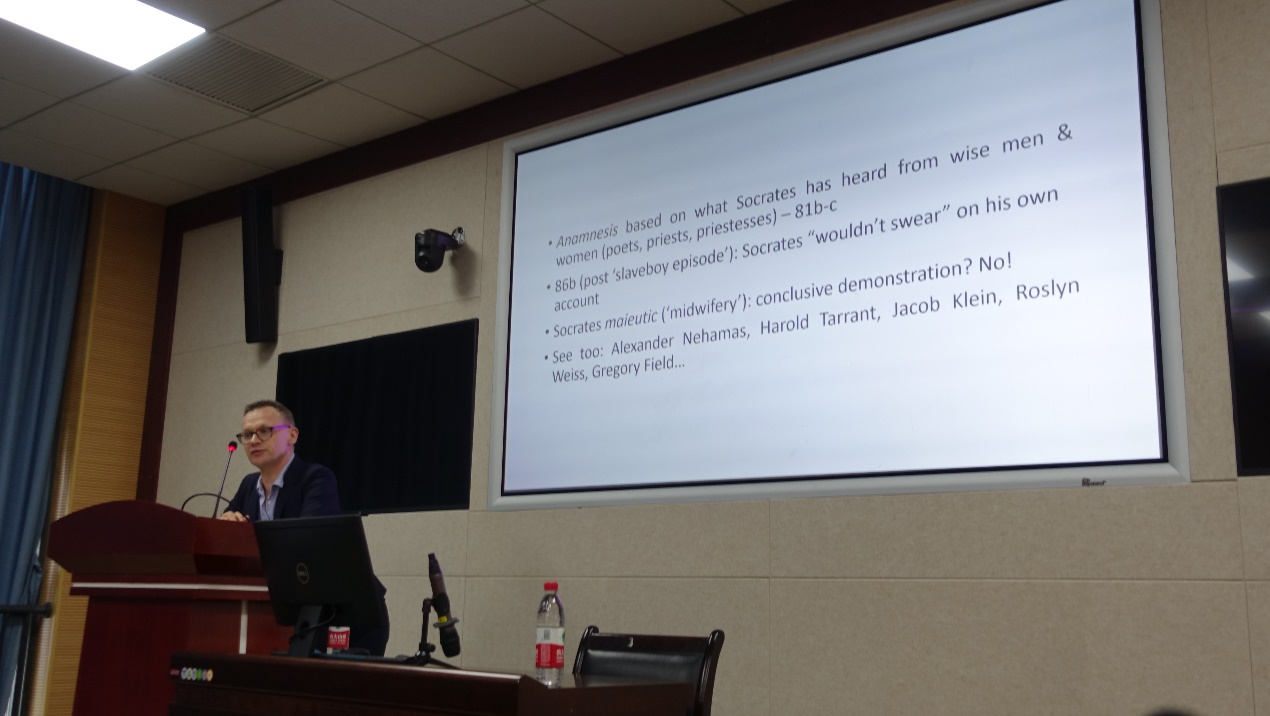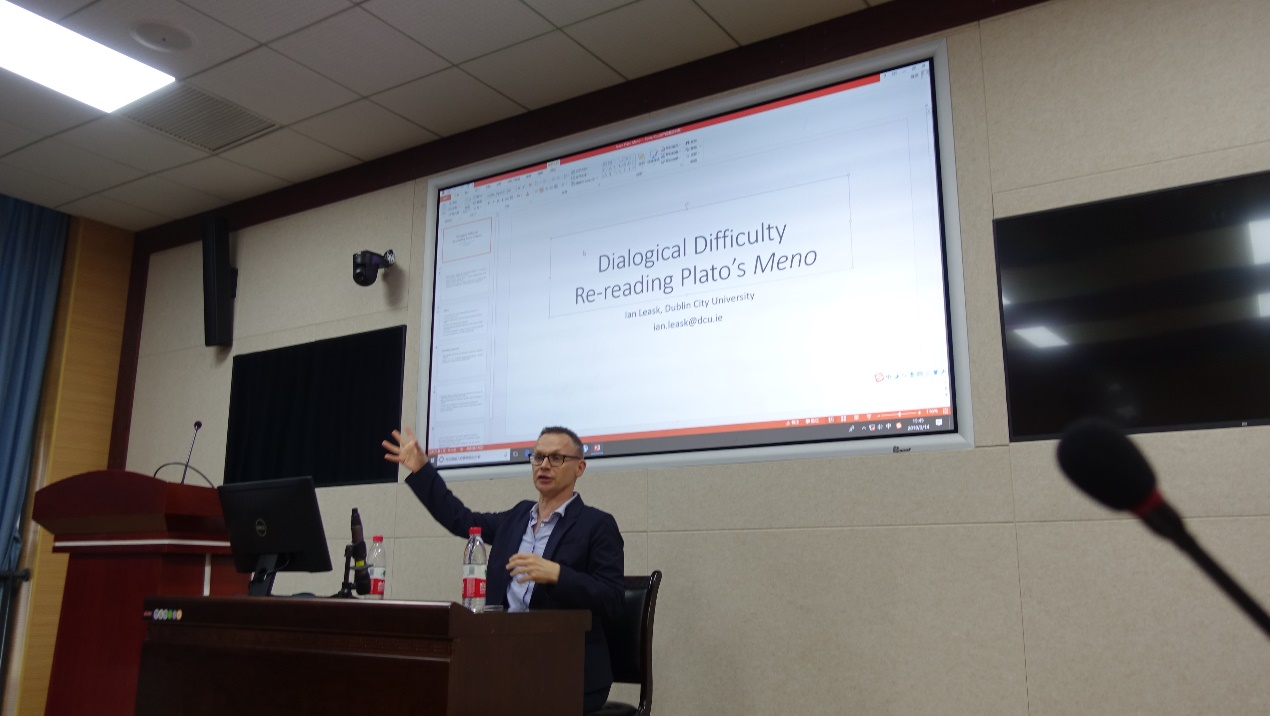On March 14, a lecture entitled “Dialogical Difficulty: Re-Reading Plato’s Meno” was delivered by Dr. Ian Leask in the Zhenhua Building of Wuhan University. Dr. Leask is a philosopher from Dublin City University (Ireland) whose main research field is general Western Philosophy, including Plato’s reception in European Philosophy.

Dr. Ian Leask is giving the lecture.
Dr. Leask started the lecture with Jacques Derrida and Hans-Georg Gadamer’s quest on the presuppositions of dialogue in general, with Jacques Ranciere claiming that Plato’s Meno typified anti-democratic, anti-egalitarian Western philosophy.
Dr. Leask then briefly introduced Plato’s Meno. According to Leask, it is a Socratic dialogue where the two main speakers, Socrates and Meno, discuss relevant questions of human virtue: what it is, and whether it can be taught. Additional participants in the dialogue include one of Meno's slaves and the Athenian politician Anytus, a prosecutor of Socrates with whom Meno is friendly. It is an early Platonic dialogue which is often regarded as providing a paradigmatic example of what philosophical dialogue might achieve.
Following the introduction, Dr. Leask turned to a discussion of more specific issues in Plato’s Meno. Among these is a famous paradox: how to search for X without already knowing X? Dr. Leask quoted the slave boy episode to indicate that virtue was not teachable but true belief was. Dr. Leask considered whether the assumption of clear and transparent conversation might mask various problematic, even aporetic, issues. Furthermore, he tried to consider whether the Meno might provoke wider questions about the general efficacy of dialogue and so, in turn, whether it might show Plato himself to question what might seem ‘obviously Platonic’.

Dr. Ian Leask is answering students’ questions.
Students and faculty from the School of Philosophy attended this lecture and engaged in a lively discussion with Dr. Leask on the questions raised. Students expressed themselves bravely and communicated with Dr. Leask on various aspects regarding the lecture. For example, what is the real difficulty? Do all the early dialogues show difficulties? Can we extract a principle from the dialogue? The form of dialogues is also to be questioned: why did Plato choose to have the dialogues with different people rather than himself? Is what he wrote only a play on words which is what anti-Platonism claims? Or, did Plato put his own ideas in Socrates’ mouth and portray him as a bare foot son of poverty with no institutional power? Furthermore, one participant tried to compare the dialogue of Plato with Confucius’ dialogue with his own pupils. These topics provoked the audiences’ interest and encouraged them to think more deeply about these philosophical questions. Owing to the interaction between Dr. Leask and the participants, everyone was taken on a mysterious journey into the wonderland of philosophy.
As part of the philosophy lecture series delivered by overseas scholars, this lecture offered a glimpse of the benefits of internationalization of education in WHU’s School of Philosophy. Seven more lectures and conferences are scheduled to take place in the school during the 2019 spring semester, enabling WHU students to learn more about philosophy and communicate directly with overseas scholars.
The School of Philosophy eagerly engages in internationalization of teaching and research. At present, more than eight foreign professors, researchers and faculty are working full-time in the school, helping to create an international environment. Several undergraduate and graduate courses taught in English are also available in the school, including Ethics, Epistemology, Philosophy of Language, Metaphysics, and Contemporary Philosophical Issues. An international MA in Philosophy is well established, with full scholarships provided to outstanding applicants.
With all these efforts, the School of Philosophy is able to provide its students with an international study environment which offers students many benefits, including and cultivation of talents with a broader mindset. As such, the School presents a wonderful example of Wuhan University’s successful internalization agenda.
Photo by Hu Zixin
Edited by Zhou Siyan, Zheng Yayun, Shi Weiya & Hu Sijia